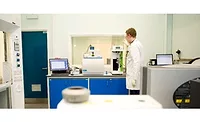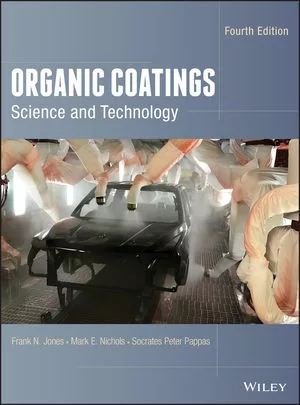New Testing Capabilities Better Serve Medical Coatings Customers
New particulation testing at Bayer's Medical Coatings Development Centre in Sheffield, England allows the company to better assess the quality and safety of the customer parts it coats.
Bayer MaterialScience LLC has announced the establishment of particulation testing at its affiliated research and development facility, the Medical Coatings Development Centre in Sheffield, England. This capability allows Bayer to better assess the quality and safety of the customer parts it coats, and Bayer scientists believe the results will enhance the reputation for durability of its Baymedix™ CL 100 lubricious surface modification product.
Particulation, or particle generation, refers to the tendency for a material to shed wear particles during use. For coatings, it is related to both physical properties and the strength of adhesion to the substrate. Medical device manufacturers have become increasingly aware of this phenomenon and its relevance in designing new products. It is especially relevant for medical devices like catheters that are used in the bloodstream and often contain a hydrophilic lubricious coating for ease of handling or enhanced performance. As safety-related performance measures have become a growing focus, device manufacturers are including particulation data more often when applying for market approval.
Researchers at the Medical Coatings Development Centre have integrated a particulation measurement system into the coating qualification process and have developed a series of relevant protocols to generate the particulates. Said Jeff Motley, R&D Manager of the site for Bayer plc, “We have established a range of methods, ranging from quick, high-throughput particulation screens, up to full simulated use testing in models that simulate physiological anatomy.”
According to Motley, measuring particulation has become an integral tool in identifying appropriate processing conditions to apply the Baymedix™ CL 100 to various surfaces. He explained, “Where before we tended to focus on lubricity and durability of our coating, we now optimize for particulation requirements as well.” Furthermore, the site now uses particulation in its quality management system.
Paul Nowatzki, Business Development Manager for Bayer MaterialScience LLC, commented on the significance of this new measurement capability, saying, “Customers of hydrophilic coatings have several demands: low coefficient of friction, good adhesion, good durability, and resistance to particulation. With our wide range of coating and testing capabilities, we’re able to demonstrate product performance, value, and consistency to customers.”
Bayer MaterialScience’s Medical Coatings Development Centre works exclusively on applications technology for the Baymedix™ portfolio of materials for medical devices.
Bayer MaterialScience LLC has announced the establishment of particulation testing at its affiliated research and development facility, the Medical Coatings Development Centre in Sheffield, England. This capability allows Bayer to better assess the quality and safety of the customer parts it coats, and Bayer scientists believe the results will enhance the reputation for durability of its Baymedix™ CL 100 lubricious surface modification product.
Particulation, or particle generation, refers to the tendency for a material to shed wear particles during use. For coatings, it is related to both physical properties and the strength of adhesion to the substrate. Medical device manufacturers have become increasingly aware of this phenomenon and its relevance in designing new products. It is especially relevant for medical devices like catheters that are used in the bloodstream and often contain a hydrophilic lubricious coating for ease of handling or enhanced performance. As safety-related performance measures have become a growing focus, device manufacturers are including particulation data more often when applying for market approval.
Researchers at the Medical Coatings Development Centre have integrated a particulation measurement system into the coating qualification process and have developed a series of relevant protocols to generate the particulates. Said Jeff Motley, R&D Manager of the site for Bayer plc, “We have established a range of methods, ranging from quick, high-throughput particulation screens, up to full simulated use testing in models that simulate physiological anatomy.”
According to Motley, measuring particulation has become an integral tool in identifying appropriate processing conditions to apply the Baymedix™ CL 100 to various surfaces. He explained, “Where before we tended to focus on lubricity and durability of our coating, we now optimize for particulation requirements as well.” Furthermore, the site now uses particulation in its quality management system.
Paul Nowatzki, Business Development Manager for Bayer MaterialScience LLC, commented on the significance of this new measurement capability, saying, “Customers of hydrophilic coatings have several demands: low coefficient of friction, good adhesion, good durability, and resistance to particulation. With our wide range of coating and testing capabilities, we’re able to demonstrate product performance, value, and consistency to customers.”
Bayer MaterialScience’s Medical Coatings Development Centre works exclusively on applications technology for the Baymedix™ portfolio of materials for medical devices.
Looking for a reprint of this article?
From high-res PDFs to custom plaques, order your copy today!






